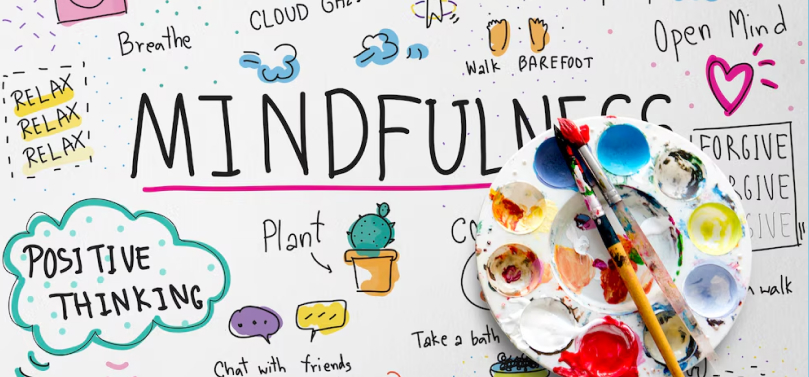The Power of Positive Work Skills
In today's fast-paced and competitive work environment, possessing positive work skills goes beyond technical expertise.
It encompasses a range of qualities and attitudes that contribute to personal and professional success. Let's explore the transformative power of positive work skills and how they can impact your career and overall well-being.
1. Communication and Collaboration
Effective communication is the cornerstone of success in any workplace. Positive work skills in communication involve not just speaking clearly and articulately but also active listening, empathy, and the ability to collaborate seamlessly with colleagues. By fostering open and constructive communication, individuals can build strong relationships, resolve conflicts, and drive collective goals forward
2. Adaptability and Resilience
In today's dynamic work environment, adaptability and resilience are invaluable traits. Positive work skills in this area include the ability to embrace change, learn from setbacks, and bounce back from challenges with a positive attitude. Adaptable individuals thrive in evolving situations, bring fresh perspectives to problem-solving, and inspire confidence in their teams.
3. Emotional Intelligence
Emotional intelligence (EQ) is another crucial aspect of positive work skills. It involves self-awareness, self-regulation, empathy, and social skills. EQ enables individuals to understand their emotions and those of others, navigate interpersonal dynamics effectively, and make informed decisions based on empathy and understanding. Cultivating EQ leads to stronger relationships, better teamwork, and enhanced leadership abilities.

4. Organization and Time Management
Positive work skills in time management and organization are essential for productivity and efficiency. These skills include prioritization, goal-setting, task delegation, and effective use of tools and resources. Organized individuals can manage their workload effectively, meet deadlines consistently, and maintain a healthy work-life balance, leading to reduced stress and increased job satisfaction.
5. Problem-Solving and Critical Thinking
The ability to think critically and solve problems creatively is a hallmark of positive work skills. This involves analysing situations, gathering relevant information, considering alternative perspectives, and generating innovative solutions. Individuals with strong problem-solving skills contribute to strategic decision-making, drive continuous improvement initiatives, and inspire a culture of creativity and innovation in the workplace.

6. Positive Attitude and Mind-set
Perhaps the most impactful of all positive work skills is maintaining a positive attitude and mind-set. Positivity breeds optimism, resilience, and a can-do spirit that propels individuals forward in their careers. A positive attitude not only enhances personal well-being but also influences team morale, fosters a supportive work culture, and attracts opportunities for growth and advancement.
7. Continuous Learning and Development
Lastly, positive work skills include a commitment to continuous learning and professional development. Embracing lifelong learning keeps skills relevant, expands knowledge and expertise, and positions individuals as valuable assets to their organizations. By staying curious, seeking feedback, and pursuing growth opportunities, professionals can stay ahead in their careers and adapt to evolving industry trends.
8. Leadership and Influence
Positive work skills extend to leadership qualities such as transparency, accountability, and the ability to inspire and motivate others. Effective leaders lead by example, empower their teams, and foster a culture of trust and collaboration. They leverage their influence to drive positive change, navigate challenges, and achieve shared goals.
9. Creativity and Innovation
Creativity and innovation are essential drivers of progress in today's dynamic work landscape. Positive work skills in this area involve thinking outside the box, challenging conventional wisdom, and embracing experimentation and risk-taking. Creative individuals contribute fresh ideas, drive innovation initiatives, and propel organizations toward competitive advantage and market leadership.
10. Cultural Competence and Diversity
In an increasingly diverse and interconnected world, cultural competence is a vital positive work skill. It involves respect for diverse perspectives, sensitivity to cultural differences, and the ability to work effectively in multicultural teams. Culturally competent individuals foster inclusion, celebrate diversity, and leverage the richness of varied experiences to drive innovation and achieve organizational success.
11. Networking and Relationship Building
Positive work skills in networking and relationship building are key to professional growth and opportunities. Building and nurturing professional relationships, both within and outside the organization, opens doors to mentorship, collaboration, and career advancement. Networking effectively involves genuine interest, mutual support, and the ability to create meaningful connections that benefit all parties involved.
11. Conclusion:
In conclusion, the power of positive work skills extends far beyond technical competencies. It encompasses a holistic approach to personal and professional development, including effective communication, adaptability, emotional intelligence, time management, problem-solving, a positive attitude, and a commitment to lifelong learning. By cultivating these skills, individuals can thrive in their careers, foster positive work environments, and achieve long-term success and fulfillment.
This blog has highlighted why and how the career guidance process can help you or your child. Start right away and seek out the assistance you need by dropping a mail at support@margforyou.com






